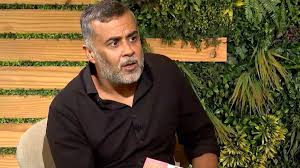
AI Lacks Emotion: Chetan Bhagat on Writing
Chetan Bhagat, a celebrated Indian author, recently shared his thoughts on the impact of Artificial Intelligence (AI) on the writing profession, particularly fiction. During the launch of his latest book, "12 Years: My Messed-Up Love Story," he expressed confidence that AI could never replace the emotional depth that human experiences bring to storytelling.
Bhagat stated, “AI will have a skill but not an art.” He believes that while AI tools can assist with various tasks, they lack the ability to evoke genuine emotions that resonate with readers. For Bhagat, storytelling is deeply rooted in lived experiences, which machines simply cannot replicate. He emphasized that authentic writing comes from personal experiences like love, heartbreak, and life’s ups and downs.
In his discussion, Bhagat highlighted the significance of human connection in storytelling. He noted, “People are interested in people.” This connection is what makes stories engaging. If storytelling were left to bots, he argued, it would lack the warmth and relatability that readers crave.
Challenging the idea that AI could rival creative writing, Bhagat asked listeners to consider, “Tell me a single book that was written by AI.” He asserted that while AI may be proficient at handling administrative tasks, it cannot convey the true emotions essential for compelling narratives. He warned that even if AI evolves to mimic human emotions, audiences would still recognize its artificiality and lose interest.
Bhagat also urged aspiring writers to hone their craft, stressing that qualities like observation, discipline, and hard work are vital. He encouraged them to draw inspiration from their lives and the complexities of human relationships. His new book, featuring a love story between a 33-year-old man and a 21-year-old woman, aims to resonate with both Gen Z and millennials.
In conclusion, Bhagat reiterated that despite advancements in AI, creativity rooted in human experience will always hold a special place in literature. He believes that the essence of storytelling lies in real emotions, ensuring that the art of writing remains a uniquely human endeavor.











